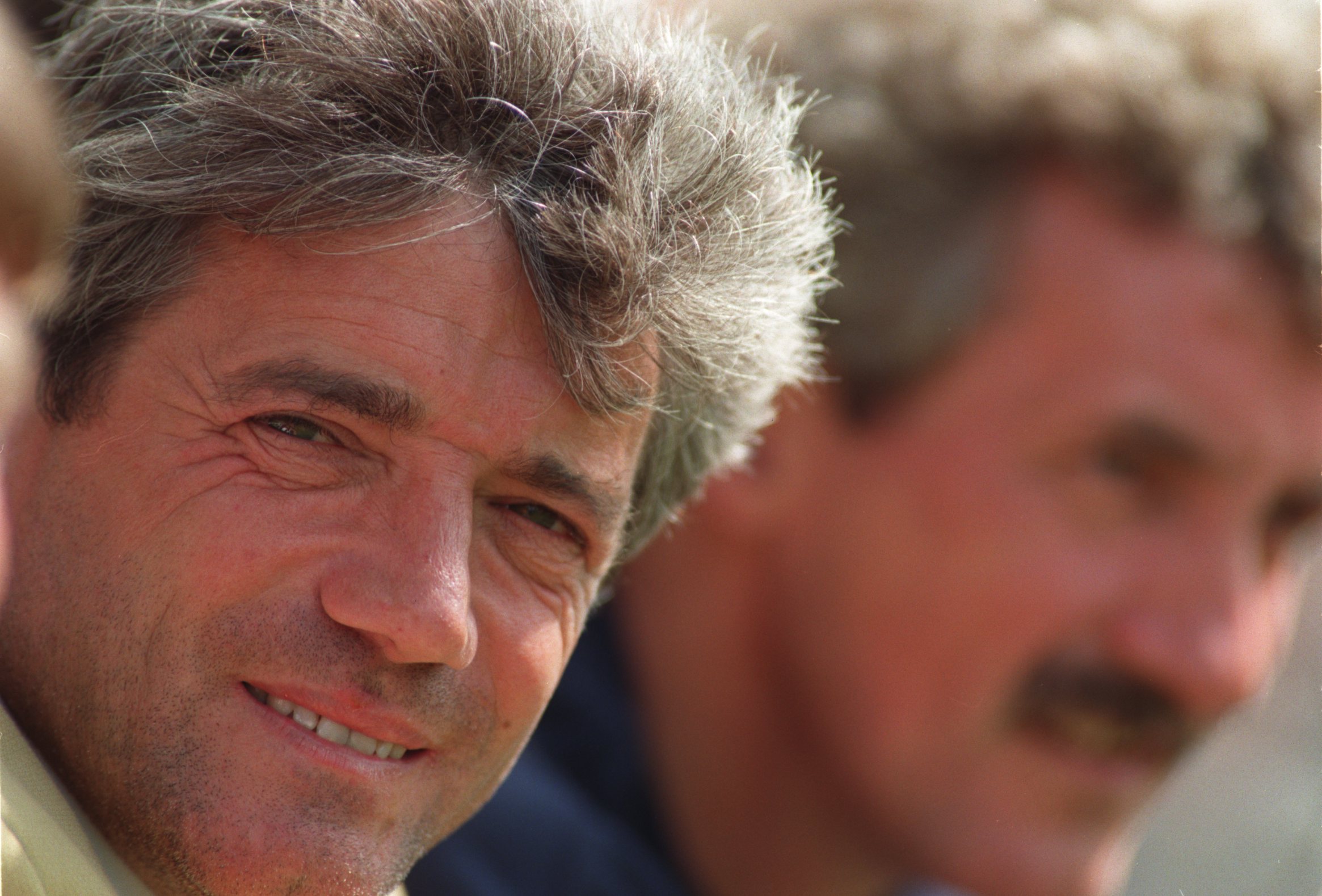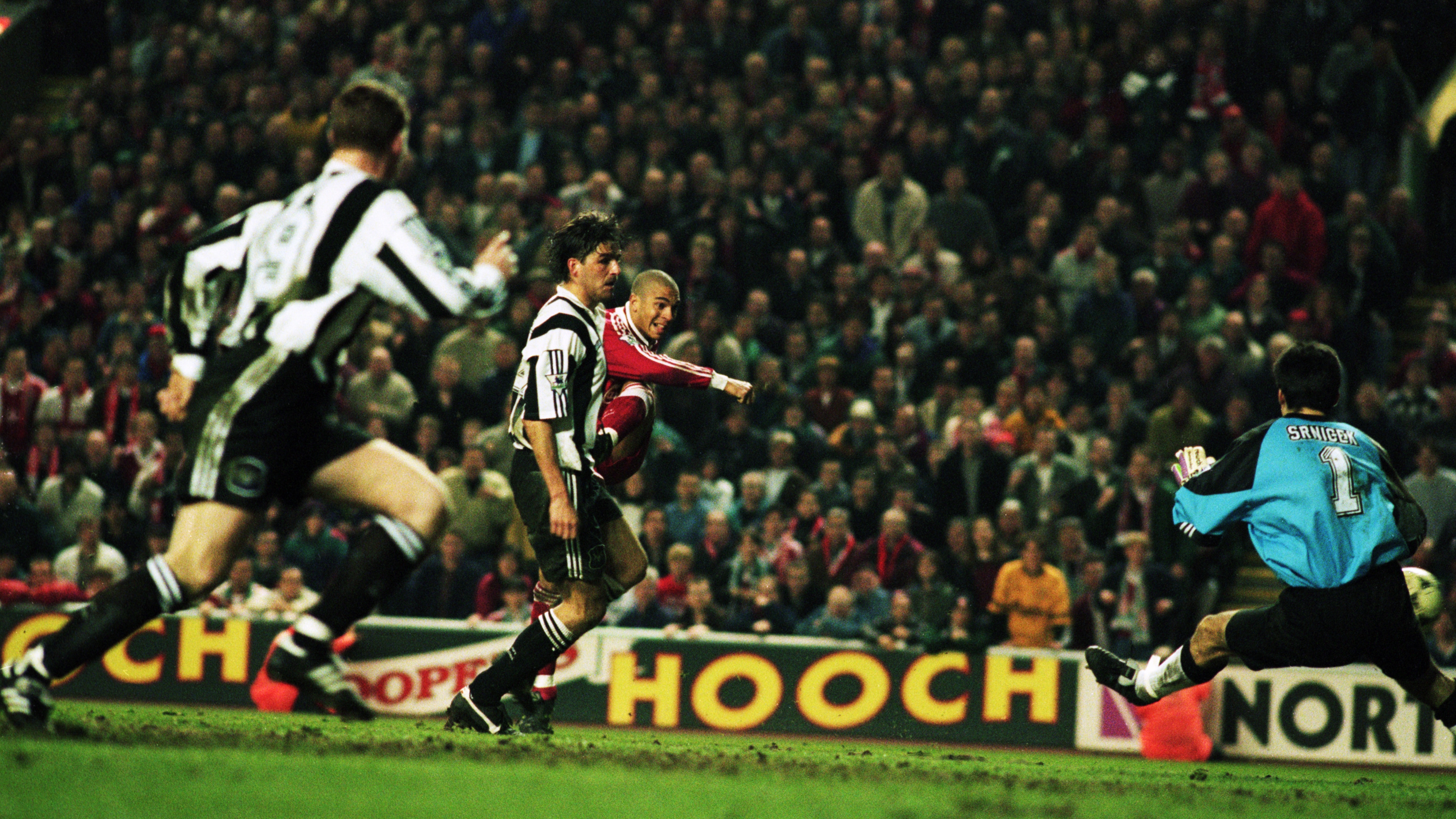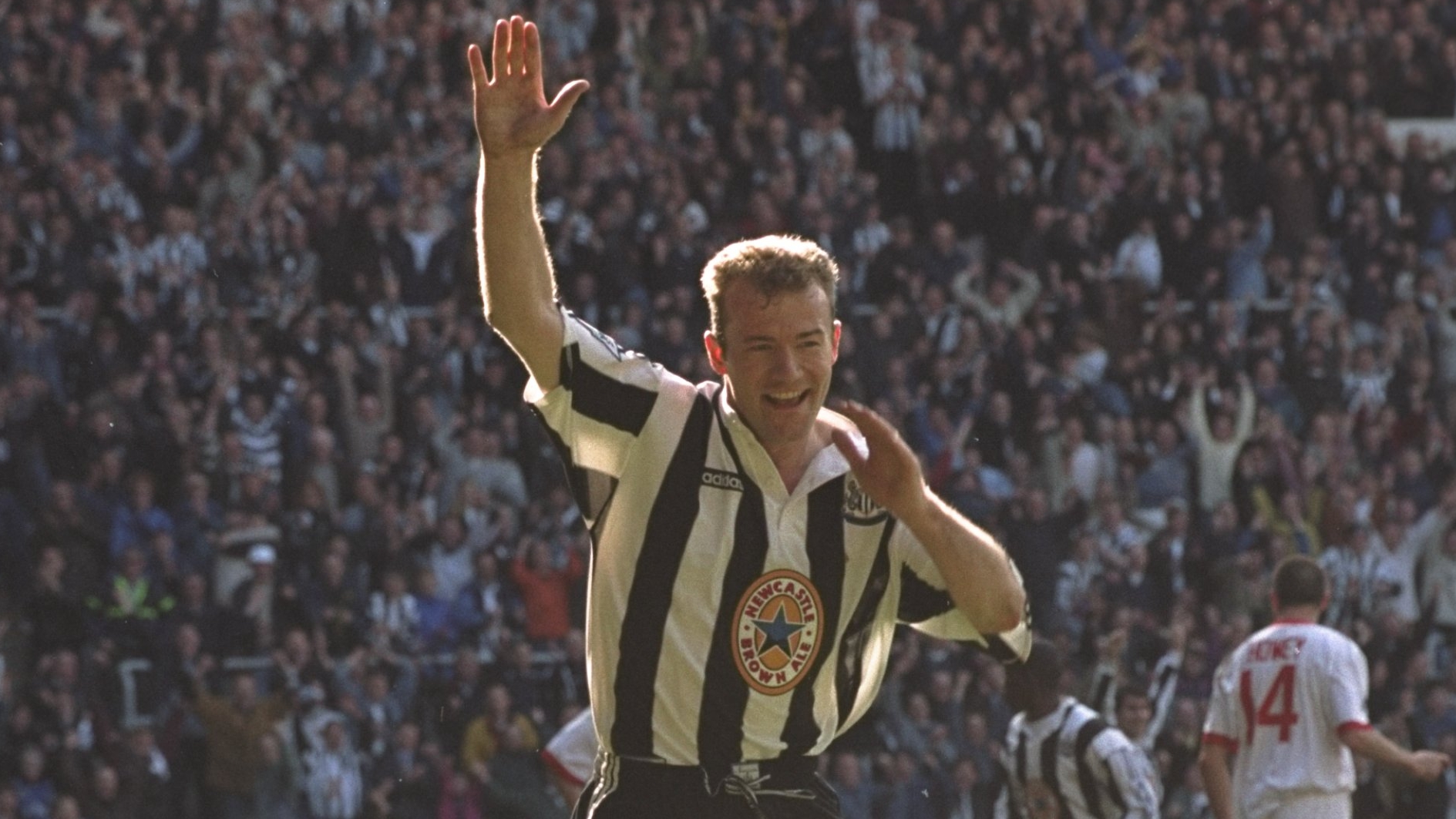The Entertainers
1992 - 1998
The return of King Kev
Kevin Keegan had spent the last seven years living in Spain, but when Sir John Hall – who was on the verge of taking over the club – asked him to become the manager of Newcastle United on a short-term contract, the lure of a return to Tyneside was too strong to ignore.
The Magpies were nearly bankrupt, faced relegation from the Second Division – never before had they slipped to the third tier of English football – and St. James’ Park had been neglected. Newcastle needed a saviour in their centenary year.
Keegan’s mere presence lifted the supporters, just as it had done when he arrived as a player, and it clearly had an effect of the players too as they narrowly avoided the drop on the final day of the season.
Rise of 'The Entertainers'
Having finished 20th in the second tier, Keegan and Sir John joined forces to spark a stunning turnaround, with the Magpies starting off the 1992/93 campaign with a remarkable eleven straight wins.
Andy Cole, a young striker from Bristol City, came in towards the end of the campaign, while the likes of Steve Howey, Lee Clark, John Beresford, Rob Lee and the late Pavel Srníček were to become a huge part of what was to come.
They ended the season in spectacular style, beating Leicester City 7-1 to rocket back into the top tier.
Entering the Premier League in its second season, Keegan brought in new players and Newcastle firmly established themselves with an impressive third-place finish.
Manager Kevin Keegan alongside his assistant and former teammate, Terry McDermott
What's more, they were playing fantastic football - characterised by flowing attacks, incisive passing moves and majestic wing play.
In the summer of 1995, more firepower and flair were added, with the likes of Les Ferdinand and David Ginola arriving.
Warren Barton joined as a marauding full-back, Peter Beardsley returned for a second spell and Philippe Albert and Darren Peacock bolstered the backline.
Newcastle quickly became known as the 'Entertainers’ – most football fans’ second-favourite team.
Within touching distance
More importantly, though, they were thrilling their own supporters. St. James’ Park was being redeveloped, there was a waiting list for season tickets and United were back in Europe.
And in 1995/96, they so nearly won the Premier League title.
In January 1996, United were 12 points clear at the top of the table but a dip in form, allied with Manchester United’s relentless form under Alex Ferguson (later Sir Alex), saw that cut and eventually Keegan’s side were pipped into second.
Heartbreak for the Magpies as Stan Collymore puts Liverpool 4-3 up against Newcastle United at Anfield in 1996
A 4-3 defeat to Liverpool at Anfield - still regarded by many as the greatest game of football in the Premier League era - was particularly pivotal, as was a 2-1 defeat to Blackburn, when two late goals from Geordie Graham Fenton proved costly.
Manchester United, meanwhile, recorded a succession of narrow wins to lift the trophy.
Shearer comes home
Rather than lick their wounds, Newcastle signalled their intentions by breaking the world transfer record to sign local hero Alan Shearer from Blackburn Rovers for £15m. It would prove to be money well spent.
Alan Shearer celebrates in trademark fashion
Keegan left midway through the following season – although only after a never-to-be-forgotten 5-0 win against Manchester United, with Philippe Albert's sensational chip over Peter Schmeichel completing the scoring.
The Magpies finished second again under Kenny Dalglish, qualifying for the UEFA Champions League for the first time after a shift in qualification criteria.
Though the Scotsman oversaw a change to a more conservative style, Newcastle still had their moments of magic under Dalglish.
He led United to another iconic win in September 1997, when Faustino Asprilla's hat-trick saw the Magpies defeat Barcelona 3-2 in their opening Champions League group game at a packed St. James' Park.
Dalglish also took the club to its first cup final in 22 years, though Arsenal prevailed at Wembley in the FA Cup in 1998.
Sexy football?
Another big name, Ruud Gullit, was the club’s next manager and the former AC Milan star promised to bring “sexy football” to Tyneside.
He led Newcastle to a second successive FA Cup final but they were beaten by Manchester United, who went on to complete an unprecedented treble.
Results in the Premier League, however, were not as alluring as the Dutchman had hoped and after a 13-placed finish, a high-profile spat with senior players would herald a change just five games into the 1999/00 season.




